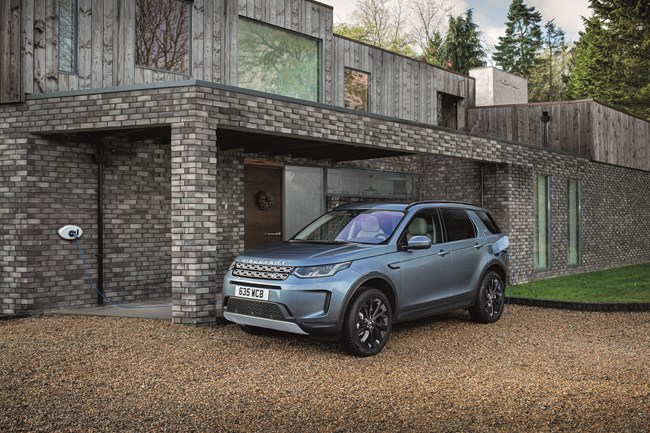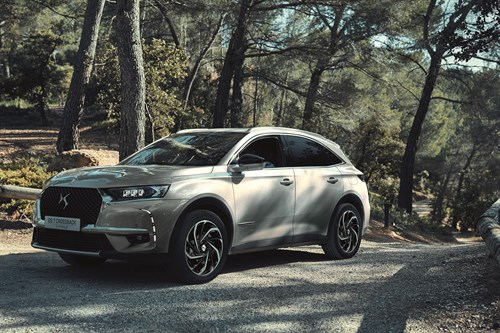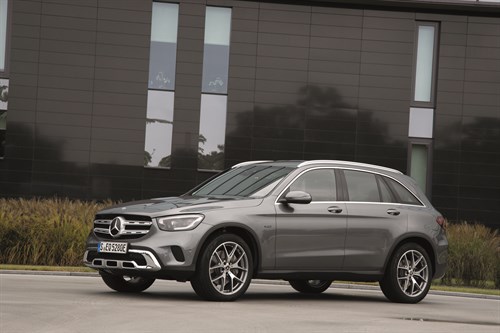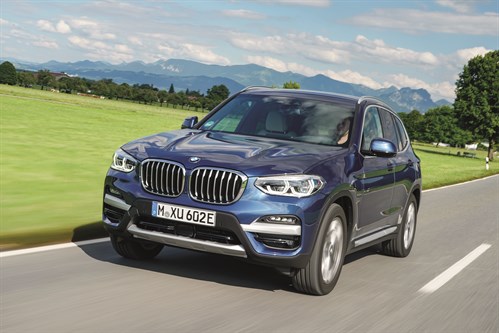
The start point for the best source of fleet information |
Best in Class: Large SUV plug-in hybrids
Date: 01 October 2020 | Author: Simon Harris

Land Rover Discovery Sport
The proliferation of SUVs and crossovers in the past 25 years has been a marketing phenomenon that has presented car manufacturers with as many problems as opportunities. The growth in popularity of SUVs has run in parallel with moves to curb vehicle emissions, and clearly the appeal of this type of vehicle has been strong enough for many to offset higher fuel consumption than conventional cars, as well as higher CO2 emissions.
But fuel costs and personal tax liability are only half the story, and car manufacturers have to comply with EU-wide rules on CO2 emissions for the vehicles they sell.
Through their size and high-riding stature, SUVs have been the ideal models in which to package plug-in hybrid technology.
It's only a couple of years since Land Rover launched its first plug-in hybrid vehicles. They were both Range Rovers: the Range Rover Sport P400e and the Range Rover P400e.
But electrification technology moves fast, and installing a plug-in hybrid system in cars that were in the second half of their life cycles always meant a risk of being overtaken by newly introduced models.
Land Rover's second two hybrids are rather better placed. The Range Rover Evoque P300e and the Land Rover Discovery Sport P300e (the latter featured here) have recently become available to order, and are 2020 introductions for cars launched in 2019.
Battery capacity and electric-only range are absolutely competitive with premium rivals, and the Discovery Sport is priced squarely at rivals from Audi, BMW and Mercedes-Benz.
It's where you would expect to find it performing in most crucial areas of costs, and although it loses out a little to some rivals on fuel efficiency, its residual value is solid. Also bear in mind we've selected the highest-spec HSE R-Dynamic to tip the scales at just over £50,000 to match the BMW X3 xDrive 30e M Sport - it's possible to choose a Discovery Sport P300e in a number of lower equipment grades.
Land Rover Discovery Sport P300e HSE R-Dynamic
P11D: £51,050
CO2 (tax): 40g/km (10%)
BIK 20/40% a month: £85/£170
Fuel consumption: 175.5mpg
National Insurance (2020/21): £704
First year VED: £0
Subsequent VED: £465
Engine size/power: 1,500cc plus electric motor/309hp
AFR: 12p
Residual value: 40.9%
Depreciation: £30,115
Fuel: £1,678
SMR: £2,940
Cost per mile: 57.9p

DS 7 Crossback
As Audi is readying its 2021 model year line-up and we don't currently have pricing for the Q5 50 TFSI e in our system (although the outgoing variant would have struggled in this company on CO2 emissions alone), we look to an outlier in the DS 7 Crossback to bring some variety into this comparison.
The costs for a non-traditional premium brand in this comparison are probably closer than you'd expect. And, with a combination of the lowest CO2 emissions and considerable plug-in range, it's the lowest for BIK tax and employers' National Insurance Contributions by some margin.
The DS 7 certainly has the style, technology and luxury to compete here, if not quite the brand recognition.
DS 7 Crossback E-Tense Prestige
P11D: £50,670
CO2 (tax): 31g/km (6%)
BIK 20/40% a month: £51/£102
Fuel consumption: 235.4mpg
National Insurance (2020/21): £420
First year VED: £0
Subsequent VED: £465
Engine size/power: 1,598cc plus electric motor/300hp
AFR: 12p
Residual value: 37%
Depreciation: £31,895
Fuel: £1,355
SMR: £2,294
Cost per mile: 59.7p
BMW X3
BMW is a well-established producer of plug-in hybrid cars, and it has been rolling out electrified versions across its range.
The X3 doesn't fare as well as some of its rivals here on BIK tax because its electric-only range is lower than 30 miles, so drivers end up paying company car tax at 12% when the Land Rover and DS offer lower rates.
But its residual value is higher than any of the other cars here (although depreciation is slightly higher than the lower-priced Mercedes-Benz GLC), which is testament to how used car buyers might be expected to gravitate after these cars have served their time on fleets.
BMW X3 xDrive 30e M Sport
P11D: £51,100
CO2 (tax): 45g/km (12%)
BIK 20/40% a month: £102/£204
Fuel consumption: 141.2mpg
National Insurance (2020/21): £846
First year VED: £0
Subsequent VED: £465
Engine size/power: 1,998cc/292hp
AFR: 12p
Residual value: £22,100
Depreciation: £29,000
Fuel: £2,086
SMR: £3,578
Cost per mile: 57.8p

Mercedes-Benz GLC
Mercedes-Benz's strategy of pairing plug-in hybrid technology with petrol or diesel, depending on the model, is an unusual one, but certainly generates maximum interest for people considering switching from pure internal combustion engines.
In this comparison, the diesel variant most closely matches rivals on power, and while, like the BMW X3, its electric-only range and CO2 emissions aren't headline-grabbing, it ticks boxes in most other areas.
Another notable point: because it uses a diesel engine, the AFR for fuel reimbursement is 10p per mile, instead of 12p per mile for its petrol-electric alternatives. For fleets using AFR as a method of reimbursement, this would work out less expensive than for the petrol-fuelled cars here.
Mercedes-Benz GLC 300de AMG Line
P11D: £48,635
CO2 (tax): 49g/km (12%)
BIK 20/40% a month: £97/£195
Fuel consumption: 148.7mpg
National Insurance (2020/21): £805
First year VED: £0
Subsequent VED: £465
Engine size/power: 1,950cc/306hp
AFR: 10p
Residual value: £21,125
Depreciation: £27,510
Fuel: £2,067
SMR: £3,135
Cost per mile: 54.5p











